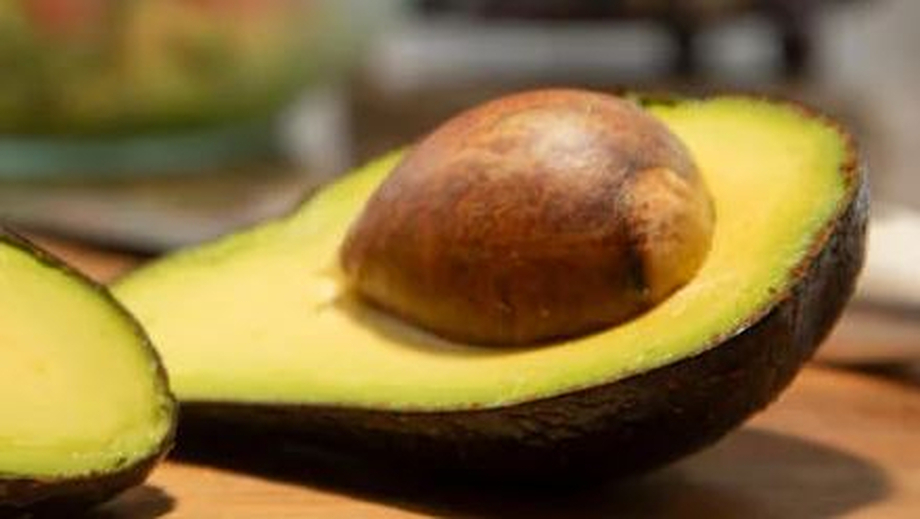PHILADELPHIA - Often called "nature's butter," the avocado is a unique and powerful fruit. While once avoided for its high fat content, it is now celebrated by nutritionists and health experts as a true superfood. Its creamy texture and rich, mild flavor make it versatile, but its dense nutritional profile is what makes it a powerhouse for a healthy diet.
From your heart to your gut, here are the incredible health benefits of adding avocados to your meals.
1. Packed with "Good" Fats for Heart Health
The avocado's most famous attribute is its fat content, and for good reason. It is one of the only fruits that contains a high amount of monounsaturated fats, specifically oleic acid (the same healthy fat found in olive oil).
This "good" fat is a cardiovascular champion:
-
Lowers "Bad" Cholesterol: Studies have repeatedly shown that a diet rich in avocados can significantly reduce levels of LDL (low-density lipoprotein), or "bad" cholesterol.
-
Raises "Good" Cholesterol: Avocados also help increase levels of HDL (high-density lipoprotein), the "good" cholesterol that helps clear plaque from your arteries.
-
Reduces Triglycerides: Regular avocado consumption is linked to lower blood triglycerides, another key marker for heart disease.
2. A Fantastic Source of Fiber for Digestion
A single avocado can pack a surprising 10-14 grams of fiber, which is nearly half of your recommended daily intake. This fiber is crucial for two main reasons:
-
Digestive Regularity: The high fiber content adds bulk and helps maintain a healthy digestive tract, preventing constipation and promoting regular bowel movements.
-
Feeds Your Gut: Avocados are a great source of prebiotic fiber. This type of fiber feeds the "good" bacteria in your gut, helping your microbiome flourish. A healthy gut is linked to a stronger immune system, better mood, and lower inflammation.
3. A Natural Tool for Weight Management
It might seem counterintuitive to eat a high-fat, calorie-dense food to manage weight, but avocados are a perfect example of how not all calories are created equal.
The combination of healthy fats and fiber in an avocado is incredibly satiating. This means it makes you feel full and satisfied for a longer period. Adding half an avocado to your breakfast or lunch can crush cravings and reduce your desire to snack between meals, ultimately helping you consume fewer calories overall.
4. A Vitamin and Mineral Powerhouse
Avocados are like a multivitamin in a shell. A single serving provides a significant amount of over 20 vitamins and minerals, including:
-
Potassium: An avocado contains more potassium than a banana. This mineral is vital for regulating blood pressure by balancing the negative effects of sodium in the diet.
-
Folate (Vitamin B9): Crucial for cell repair and healthy brain function. It is especially important for pregnant women to support healthy fetal development.
-
Vitamins K and E: Vitamin K is essential for bone health and blood clotting, while Vitamin E is a powerful antioxidant that protects cells from damage and supports healthy skin.
-
VTitamins B5, B6, and C: These vitamins are essential for energy creation, immune function, and skin health.
5. Protects Your Eyes and Skin
Avocados are rich in two powerful antioxidants: lutein and zeaxanthin. These nutrients are specifically known to accumulate in the tissues of your eyes. They act like a natural sunblock, helping to protect your eyes from harmful light waves and reducing the risk of age-related macular degeneration and cataracts.
The same antioxidants, along with Vitamin C and E, also contribute to healthy, glowing skin. Vitamin C is essential for creating collagen (the protein that keeps skin firm), while Vitamin E protects the skin from oxidative damage.
How to Add Avocados to Your Diet
The best part about avocados is how easy they are to incorporate into meals.
-
Breakfast: Spread mashed avocado on whole-grain toast instead of butter, or add slices to your scrambled eggs.
-
Lunch: Add cubed avocado to salads for a creamy texture or blend it into a "green" smoothie to add healthy fats and fiber.
-
Dinner: Use it as a topping for chili or tacos, or as a base for a creamy, dairy-free pasta sauce.
-
Snack: Simply cut one in half, sprinkle with a little salt and lemon juice, and eat it with a spoon.
The Takeaway: Far from being a food to fear, the avocado is a nutrient-dense fruit that actively supports your heart, digestion, and overall health.







